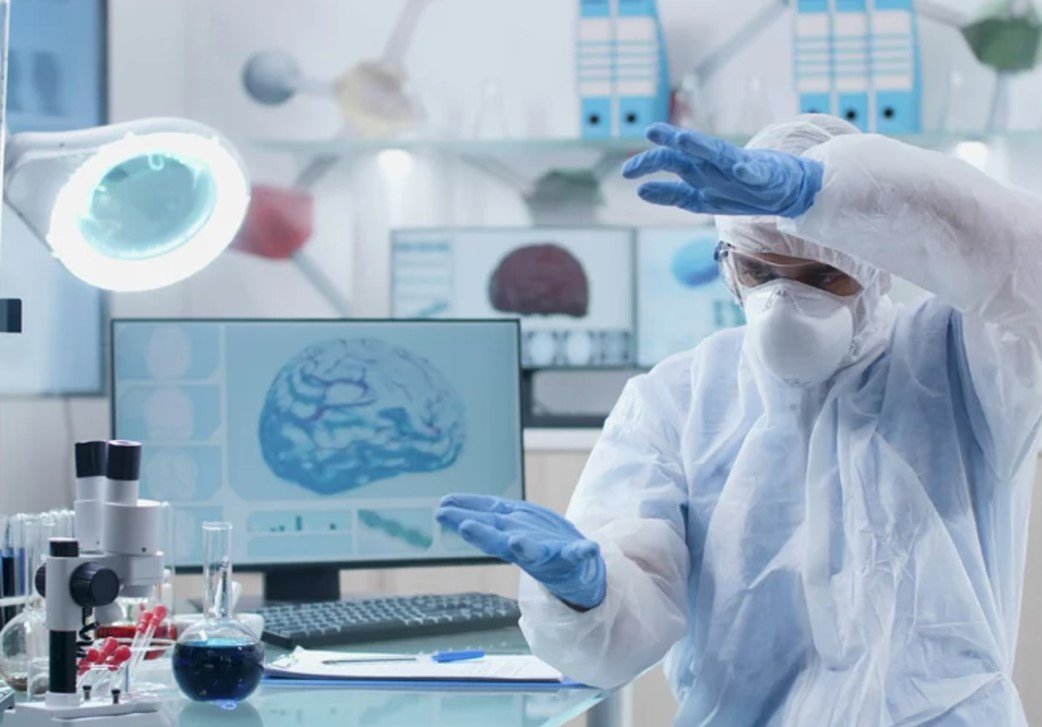Artificial Intelligence is set to transform healthcare, enhancing both patient care and economic growth.
AI’s Economic Impact on Healthcare
AI isn’t just a buzzword; it’s a powerhouse driving significant economic growth. In the United States alone, AI is expected to boost the GDP by 0.5 to 1.5 percentage points over the next decade. That translates to an impressive US$1.2 trillion to US$3.8 trillion added to the economy. These numbers show that AI isn’t just enhancing life quality but also playing a crucial role in economic performance globally.
But what does this mean for healthcare? Simply put, investing in AI is revolutionizing the way healthcare operates. Hospitals, clinics, and research institutions are all leveraging AI to streamline operations and improve patient outcomes. It’s not about replacing humans but enhancing their capabilities, making healthcare more efficient and effective.

Enhancing Treatment Delivery with AI
AI’s role in treatment delivery is nothing short of transformative. From robotic surgeries to precision medicine, AI is making procedures safer and more accurate. Robotic-assisted surgeries, for example, allow surgeons to perform complex procedures with greater precision, reducing recovery times and minimizing the risk of complications.
- Robotic Surgeries: Enhance precision and reduce recovery times.
- Precision Medicine: Tailors treatments to individual patient profiles.
- Automated Diagnostics: Speeds up diagnosis and reduces errors.
These advancements mean that patients receive better care faster. Imagine a world where surgeries are less invasive, diagnoses are quicker, and treatments are personalized to each patient’s unique needs. That’s the future AI is helping to create.
AI in Disease Detection and Prevention
One of the most promising areas of AI in healthcare is disease detection and prevention. AI algorithms can analyze vast amounts of data to identify patterns that might be missed by human eyes. For instance, AI systems are now capable of detecting breast cancer at its earliest stages, sometimes even before symptoms appear.
How AI Detects Diseases
| Disease | AI Application | Benefit |
|---|---|---|
| Breast Cancer | Image analysis of mammograms | Early detection, higher survival rates |
| Diabetes | Predictive analytics based on patient data | Preventative care, reduced complications |
| Heart Disease | Monitoring and analyzing heart rhythms | Timely interventions, reduced mortality |
This table highlights how AI is being applied to different diseases, showcasing its versatility and effectiveness in improving patient outcomes.
Streamlining Administrative Tasks
Healthcare isn’t just about patient care; administrative tasks play a significant role in the smooth operation of medical facilities. AI is streamlining these processes, reducing the burden on healthcare professionals and allowing them to focus more on patient care.
Automated scheduling, billing, and patient records management are just a few areas where AI is making a difference. By handling these repetitive tasks, AI not only saves time but also reduces the likelihood of human error, leading to more efficient and reliable healthcare services.
Expanding Access Through Telehealth
The rise of telehealth is another area where AI is making a substantial impact. With AI-powered platforms, patients can receive medical advice from the comfort of their homes. This is especially beneficial for those in remote areas or with mobility issues, ensuring that quality healthcare is accessible to everyone.
Telehealth services, enhanced by AI, offer several advantages:
- Convenience: Patients can consult with doctors without leaving home.
- Cost-Effective: Reduces the need for physical infrastructure.
- Scalable: Can serve a large number of patients simultaneously.
Imagine a patient in a rural area getting the same quality of care as someone in a major city, all thanks to AI-driven telehealth services.
Empowering Healthcare Providers
AI isn’t just benefiting patients; it’s also empowering healthcare providers. By providing real-time data and insights, AI helps doctors make informed decisions quickly. This is particularly crucial in emergency situations where every second counts.
For example, AI can analyze patient data in real-time to identify potential complications during surgery, allowing surgeons to take immediate action. This level of support enhances the capabilities of healthcare professionals, enabling them to provide better care.
Overcoming Challenges in AI Integration
Despite its many benefits, integrating AI into healthcare comes with its own set of challenges. Data privacy is a major concern, as sensitive patient information needs to be protected. Additionally, there is the issue of ensuring that AI systems are accurate and free from biases that could affect patient care.
- Data Privacy: Implementing robust security measures to protect patient information.
- Bias in AI: Ensuring AI algorithms are trained on diverse datasets to avoid biased outcomes.
- Integration Costs: Managing the financial investment required to implement AI technologies.
Addressing these challenges is essential to fully harness the potential of AI in healthcare. It requires collaboration between technology providers, healthcare professionals, and policymakers to create frameworks that ensure AI is used responsibly and effectively.
The Future of AI in Healthcare
Looking ahead, the future of AI in healthcare is incredibly promising. As technology continues to advance, AI will become even more integral to healthcare operations. From predictive analytics that forecast patient needs to AI-driven research that accelerates medical discoveries, the possibilities are endless.
Investing in AI today is setting the stage for a healthier, more efficient tomorrow. It’s about creating a healthcare system that is not only reactive but also proactive, anticipating and addressing health issues before they become critical.
















